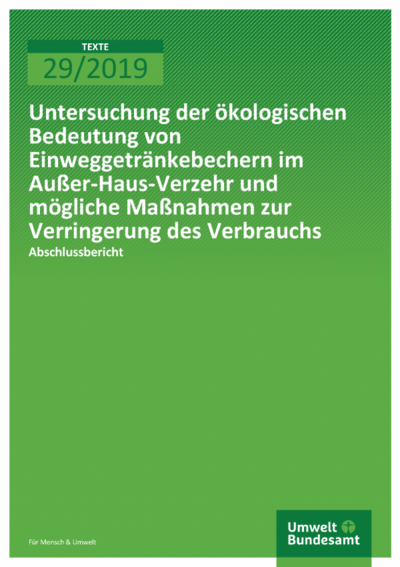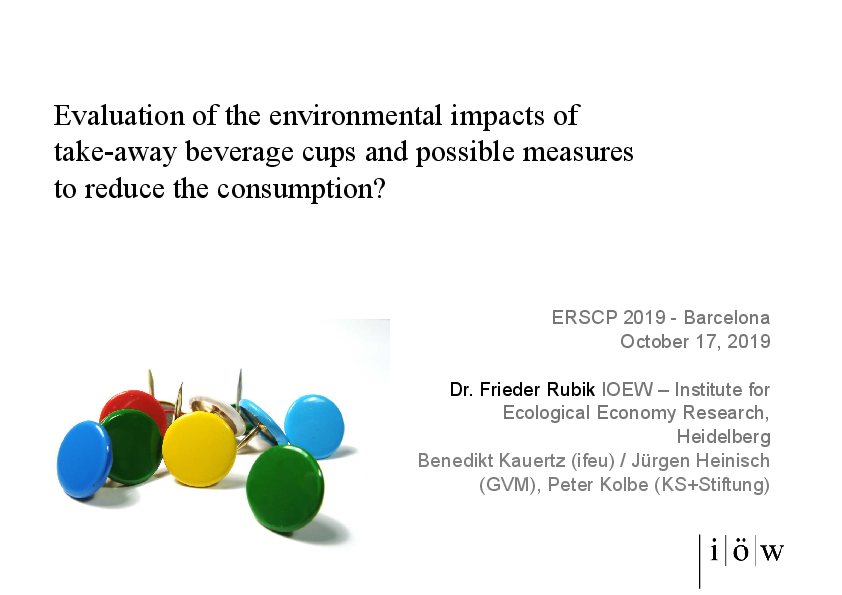Investigation of the ecological importance of disposable drink cups for out-of-home consumption and possible measures to reduce consumption
The change in living and working conditions over recent years has led to an increase in out-of-home consumption. Convenience also applies to the consumption of soft drinks and hot beverages. The total quantity of takeaway cups used for hot and cold drinks has increased significantly in recent years.
They are not only consumed “to-go”, but also usually disposed of “to-go”. A large number of used disposable cups no longer enter household waste, but are instead disposed of in public areas. Consumers often do not use waste bins for disposal. Littering caused by disposable cups is already recognised as a problem in many cities and municipalities.
The German Conference of Environment Ministers addressed this issue in June 2016 when it stated the necessity of reducing the use of disposable cups, in particular for coffee. This project therefore focuses on disposable cups used for the out-of-home consumption of hot drinks. The focus cannot be placed solely on points of acquisition, such as bakeries and system catering, but must include commercial serving locations such as canteens and vending machines in public spaces (e.g. hospitals).
Regional and municipal initiatives are attempting to counteract the increasing and publicly visible incidence of discarded disposable cups by encouraging the use of reusable cups. However, it cannot be stated from the outset that reusable systems per se are a more environmentally-friendly alternative in terms of their environmental impact and resource consumption. In particular, the environmental pollution caused by one-way and refillable cups is not restricted to the littering of public spaces that is currently the focus of awareness, but also includes the environmental impact of the production, use and disposal of one-way and reusable systems for hot drinks.
This project determines the existing systems and analyses them prototypically to ascertain their environmental impact in order to derive adequate legal and voluntary measures designed to bring about a significant reduction in the volume of waste and environmental pollution in this segment.





